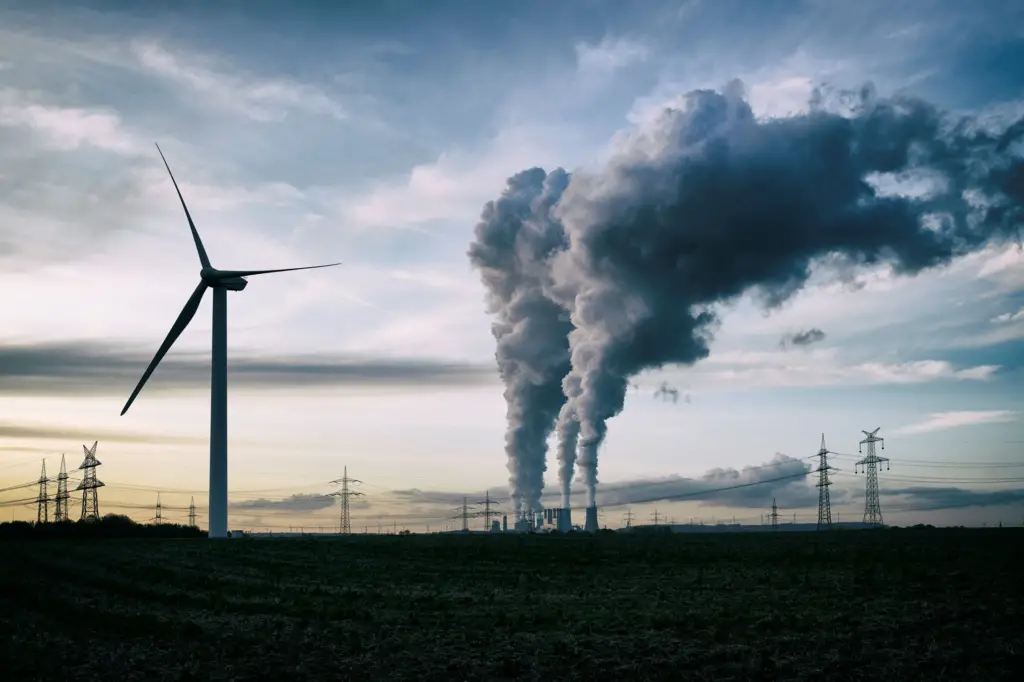Phasing out fossil fuels entirely has become an increasingly important issue as the negative impacts of the continued use of fossil fuels on human health and the environment have become more evident. The combustion of fossil fuels produces emissions that contribute to climate change and air pollution, which are significant challenges that society needs to address.
Climate change is a global phenomenon that has been caused primarily by the increasing concentration of greenhouse gases in the atmosphere. The most important greenhouse gas is carbon dioxide, which is released when fossil fuels are burned. Carbon dioxide traps heat in the atmosphere, leading to global warming and climate change. The effects of climate change include sea level rise, more frequent and severe heatwaves, droughts, and flooding, which can have significant social, economic, and environmental impacts.
Another harmful emission that results from the combustion of fossil fuels is sulfur dioxide. Sulfur dioxide contributes to the formation of atmospheric aerosols, which can cool the climate by reflecting sunlight back into space. However, these aerosols are also highly toxic when inhaled, leading to millions of premature deaths per year. Therefore, phasing out unabated fossil fuel combustion would provide health benefits, as well as mitigate the effects of climate change.

Related: Advantages and Disadvantages of Fossil Fuel
Challenges of phasing out fossil fuel
Despite the benefits of phasing out fossil fuels, there are also challenges associated with this transition. One of the main concerns is the potential near-term increase in the magnitude and rate of climate warming. This is because atmospheric aerosols respond much more rapidly to changes in emissions relative to carbon dioxide. As a result, large near-term increases in the magnitude and rate of climate warming are predicted in many idealized studies that typically assume an instantaneous removal of all anthropogenic or fossil-fuel-related emissions.
However, more realistic modeling scenarios suggest that phasing out fossil fuels would not produce a substantial near-term increase in either the magnitude or rate of warming, and may even lead to a decrease in warming rates within two decades of the start of the phase-out. Accounting for the time required to transform power generation, industry, and transportation leads to gradually increasing and largely offsetting climate impacts of carbon dioxide and sulfur dioxide. The rate of warming may also be further slowed by reductions in fossil-methane emissions.
The gradual phase-out of fossil fuels requires the development of alternative sources of energy, such as solar, wind, and hydropower. While these sources of energy have been growing rapidly in recent years, they still only account for a small percentage of global energy consumption. To fully replace fossil fuels, there needs to be a significant increase in the use of these alternative sources of energy.
The transition to a clean-energy society is also likely to have social and economic implications. Many jobs are currently tied to the fossil fuel industry, and the transition away from this industry could lead to job losses in some areas. However, the development of alternative sources of energy could also create new jobs and opportunities in other sectors. It is essential to ensure that this transition is just and equitable, so that those who are affected by the changes are supported through the process.
Another challenge associated with the phasing out of fossil fuels is the need for energy storage solutions. Solar and wind energy are intermittent sources of energy, meaning that they only generate electricity when the sun is shining or the wind is blowing. Therefore, to ensure a stable supply of energy, there needs to be a way to store excess energy generated during times of high production to use during times of low production. There are several promising energy storage technologies, such as batteries and pumped hydro storage, but more research and development is needed to bring these technologies to scale.
Conclusion
In conclusion, phasing out fossil fuels entirely is a critical step towards mitigating the impacts of climate change and reducing air pollution. While there are challenges associated with this transition, the benefits far outweigh the costs. The gradual phase-out of fossil fuels requires the development of alternative sources of energy, as well as energy storage solutions, and the just and equitable transition of the workforce. There are many policy tools that can be used to accelerate the transition to a clean-energy society, including carbon pricing, renewable energy mandates, and subsidies for clean-energy technologies.
Related posts:
- Harnessing the Power of the Sun: A Guide to Solar Installation - February 12, 2024
- Vacuum Trucks: The Unseen Heroes of Waste Management and Their Environmental Benefits, Featuring McDonald Farms - December 11, 2023
- Satellites And Climate Adaptation: Solutions From Space - December 1, 2023






